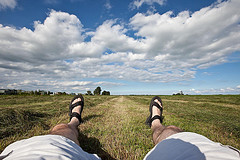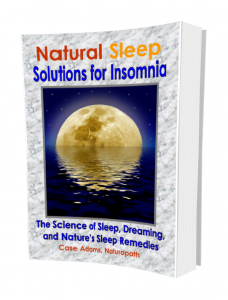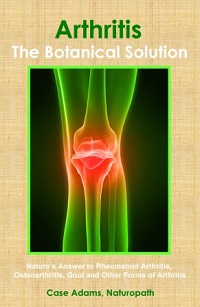Progressive Muscle Relaxation Curbs Afternoon Sleepiness
Research from Germany’s Coburg University of Applied Sciences has determined that doing a little progressive muscle relaxation at lunch significantly reduced afternoon sleepiness among workers.
Daytime sleepiness is epidemic among industrialized countries. In a 2008 poll conducted by the National Sleep Foundation, 36% of Americans regularly fall asleep while driving or drive while drowsy. And 29% either fall asleep at work or become extremely sleepy during work.
This of course affects not only productivity, but the effectiveness and safety of our work on the job. Just imagine the effects of an emergency dispatch operator falling asleep during the job. Or an airline pilot or flight controller.
Not only can this effect our safety, but the problem becomes perpetual, as a person who is sleepy during the day is more likely to have insomnia at night and vice versa. The two go hand in hand due to our body’s clock mechanisms, which cycle cortisol and melatonin.
The German researchers set out to determine whether or not a 20-minute progressive muscle relaxation routine done daily during ones lunch break could significantly affect their daytime sleepiness.
The researchers tested 14 call center operators who were otherwise healthy with no outstanding sleep disturbances (such as having a baby at home). The operators were divided into two groups. Both groups consisted of men and women, having an average age of 35 years old.
For seven months, one group practiced 20 minutes of progressive muscle relaxation. The workers were given access to a dimly lit room with a cot where they could listen to relaxing music while they performed their progressive muscle relaxation. None of the individuals tested had experience with progressive muscle relaxation prior to the study.
The other group engaged in “small talk” for the same 20 minute period.
During the testing period, both groups were given five hourly self-assessments every month for the seven month period using the Karolinska Sleepiness Scale – in addition to monthly assessments using the Pittsburgh Sleep Quality Index in addition to a sleep diary. They were also asked to maintain the same overall caffeine, alcohol, diet and fitness regimens.
The researchers found that the progressive muscle relaxation group had significantly less daytime sleepiness compared to the control group, and these effects increased through the study period.
On an immediate basis, the progressive muscle relaxation group had 37% less daytime sleepiness. After a few months, they had 46% less daytime sleepiness. By the end of the study they had 65% less daytime sleepiness.
Furthermore, the decreased daytime sleepiness continued for several months after the study period ended for those workers in the progressive muscle relaxation group.
Sleep quality is also dramatically increased by progressive muscle relaxation. A study with 75 adults with chronic primary sleep maintenance insomnia were given either placebo therapy, progressive muscle relaxation therapy or cognitive behavior therapy. Progressive muscle relaxation improved sleep by 16% among the subjects.
REFERENCES:
Sebastian Schnieder, Sarah Stappert, Masaya Takahashi, Gregory L. Fricchione, Tobias Esch, and Jarek Krajewski, “Sustainable Reduction of Sleepiness through Salutogenic Self-Care Procedure in Lunch Breaks: A Pilot Study,” Evidence-Based Complementary and Alternative Medicine, vol. 2013, Article ID 387356, 10 pages, 2013. doi:10.1155/2013/387356
Fatigue and Excessive Sleepiness. National Sleep Foundation.
Edinger JD, Wohlgemuth WK, Radtke RA, Marsh GR, Quillian RE. Cognitive behavioral therapy for treatment of chronic primary insomnia: a randomized controlled trial. JAMA. 2001 Apr 11;285(14):1856-64.



















